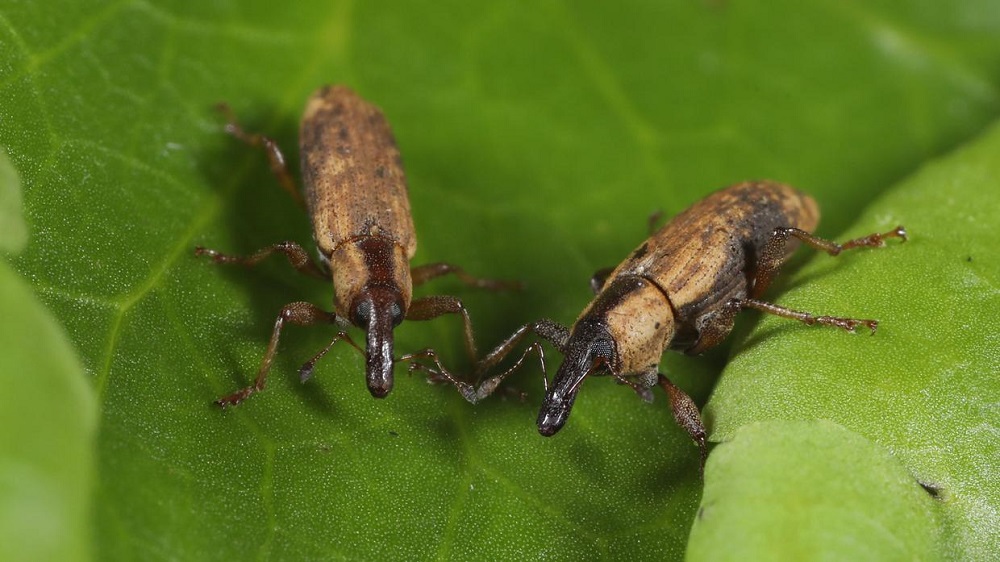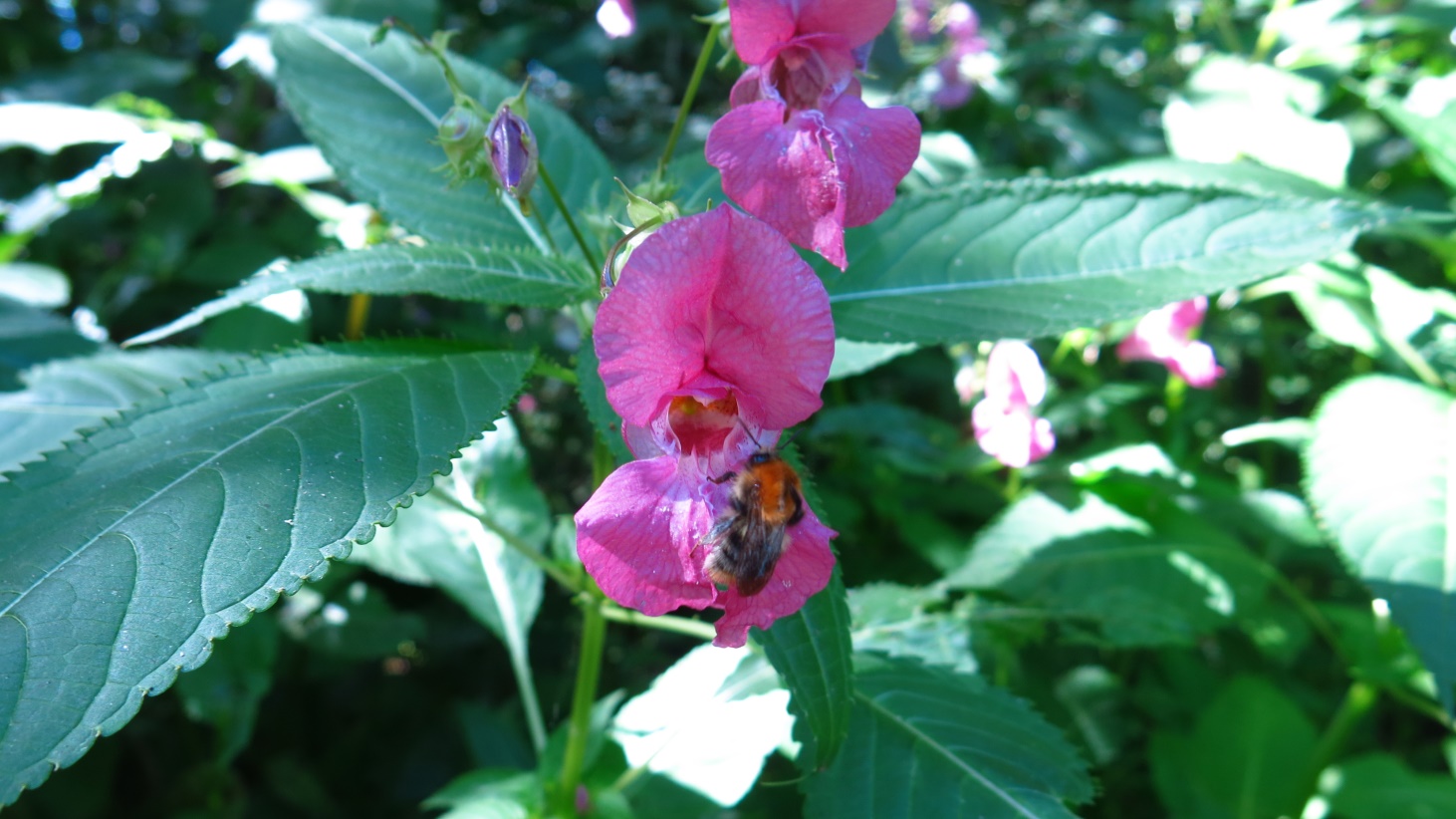
Specialist weevils from South America have been introduced to two sites in West Yorkshire to control an invasive non-native plant choking waterways.
The floating pennywort weevils have been introduced on the Aire and Calder Navigation and one of the tributaries of the River Holme, in a collaboration by CABI, Yorkshire Water, Leeds City Council, River Holme Connections and a private landowner.
As reported by PA Media and syndicated to over 114 UK news outlets including the London Evening Standard, Belfast Telegraph, Glasgow Times and Oxford Mail, the bugs, which have evolved to only feed and develop on floating pennywort (Hydrocotyle ranunculoides), will target the plant where it is clogging up the waterways.
Floating pennywort is native to Central and South America, and was brought to the UK in the 1980s as an ornamental pond plant, but escaped into natural habitats where it can grow up to 20cm a day.
Back in May, CABI revealed how its research has been the forefront of a world-first after the weevil – a more than 10 years under study – started to be released in England to sustainably fight the floating pennywort.
The release was timed to coincide with Invasive Species Week 2022. Invasive Species Week is an annual national event to raise awareness of the impacts of invasive non-native species, the simple things that everyone can do to prevent their spread, and some of the fantastic work taking place across the UK, Ireland, Jersey, Guernsey and Isle of Man to protect the environment and reduce their impacts.
Since 2011, CABI, with Defra funding, has been investigating the potential use of a biocontrol agent for floating pennywort which has the ability to grow up to 20 centimetres each day. It forms dense rafts over rivers and harms native plant, fish and invertebrate species, through competition and cutting oxygen levels in water.
Floating pennywort – an ornamental pond plant originating from North America – also impedes navigation routes, disrupts recreational activities like fishing and canoeing and exacerbates flood risk.
Dr Steph Bradbeer, invasive species and biosecurity adviser at Yorkshire Water, said: “Invasive non-native species pose a very real risk to Yorkshire’s environment and wildlife.
“They can also impact on our ability to treat and distribute water to homes and return wastewater safely to the environment.
“Floating pennywort, if unchecked, can cause significant problems in slow-flowing watercourses and impact drainage systems.
“We hope the release of these specialist weevils will provide a way of tackling it without the need for mechanical or chemical intervention.”
Djami Djeddour, senior project scientist at CABI, said: “These weevil releases are the culmination of over a decade of collaboration with South American scientists and comprehensive safety and efficacy testing in our quarantine facilities, so it is thrilling to finally get them out into the wild.”
The weevils will be closely monitored, with their impact on the spread of floating pennywort carefully monitored.
It is hoped they will help improve local wildlife and water quality, reduce the plant’s impact on flood defences and control the spread of floating pennywort in rivers.
Additional information
Main image: The Listronotus elongatus weevil has been released to control floating pennywort after more than 10 years of research (Credit: CABI/PA).
Project page
Read more about CABI’s work to ‘control floating pennywort in a safe and sustainable way’ from the project page.
Other relevant story
See also the story ‘Wonder Weevil’ released in fight against invasive floating pennywort.’
Related News & Blogs
CABI supports weevil release to help control floating pennywort in the Cam Washes
CABI scientists have been supporting the UK Environment Agency with the release of a South American weevil to serve as a sustainable biological control solution to control floating pennywort at the Cam Washes Site of Special Scientific Interest (SSSI)…
6 February 2025




